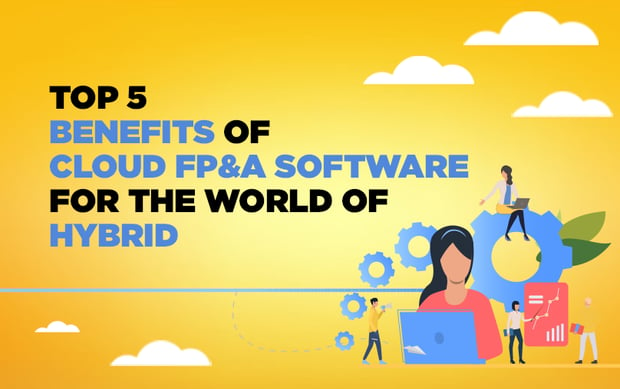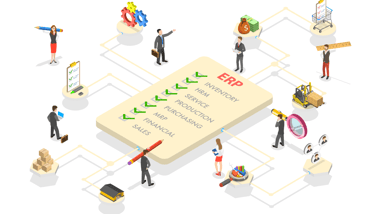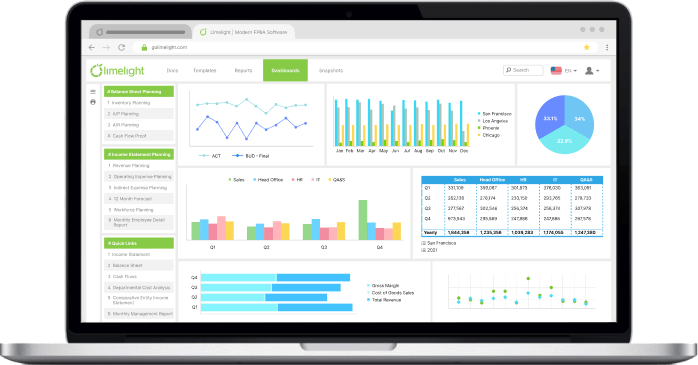The worst of Covid appears to be over and some companies are eagerly welcoming their workforce back into the office. Some companies, however, will be sticking with a hybrid model, or just moving to a fully remote set-up, citing the high cost of real-estate or a newfound familiarity and comfort in working from home. According to a series of interviews conducted by CFO Dive, many CFOs have welcomed the advent of the hybrid model because it lessened the need for unnecessary in-person meetings.
As companies adjust to the new status quo in work, they will need tools that are designed specifically for the hybrid work model. Cloud-based FP&A software is one such tool that will speed up financial work and mesh perfectly with the hybrid model. Here are the top five benefits of cloud-based FP&A software for the world of hybrid work.
1. PortabilityOne of the most important benefits of cloud-based accounting software is its portability. At the beginning of the pandemic there was a period of adjustment as the workforce adapted to working from home. There was some discomfort among workers at first but many found that existing technologies like videoconferencing and cloud-based applications had the necessary solutions to ease the transition. Cloud-based FP&A applications can be accessed and updated from anywhere by any employee. This also means that companies can pursue hiring employees with workers from around the globe without worrying too much about access. All one needs is internet access to see how the organization is doing.
2. SecurityThe question of security looms large as firms make decisions regarding their workforce. We live in an era of scammers, hackers, and corporate espionage. Security risks can affect whether firms decide to go with a remote or in-person style of work.
Cloud-based FP&A software has built-in security functions which might persuade some organizations to move to hybrid or fully remote as there is less risk of data-loss due to theft or misplacement. Cloud apps have a full-time interest in protecting and encrypting data to protect it from internal and external threats. RapidShare has found that 94% of companies felt that their security was improved after switching to cloud-based platforms.
3. Access ControlA benefit related to security are the privacy options provided by cloud-based FP&A applications. These apply not so much to external security but their internal counterpart, access. While it’s important to make sure that employees have access to all the information that they need, it is also important to limit their access to information that they do not have the clearance or need to view.
Does certain data require distinct levels of access? Do employees from certain departments only see the info related to their department? This can all be set up easily with permission levels contained within many cloud-based applications.
4. IntegrityA major problem with static spreadsheets for financial planning and analysis is that most spreadsheets contain difficult to spot human errors. This is not because of malicious or incompetent employees but is rather the result of countless individuals entering huge amounts of information and the natural errors that can occur during this process. These errors get copied from version to version leading to plans that are built on faulty information.
Cloud-based FP&A applications, in contrast, can sync directly with an organization’s ERP and input its information one to one. This allows decision makers to lead with confidence in new times of uncertainty, knowing that their decisions are based on true and complete data.
5. AutomationThe well-being of employees was a very important lesson learned during the pandemic. Generally, employees work best when they can do work that challenges them intellectually and creatively instead of draining them physically and emotionally. Automation can speed up tedious, repetitive tasks and gives finance teams the time to conduct analysis for better insights.
One of the worst aspects of working in finance is manually organizing data for spreadsheets. It is tedious, it can lead to errors and most importantly, it is not rewarding or interesting for the people that do all this repetitive work. Cloud-based FP&A can be part of the automation process to give employees a more meaningful and less wasteful work experience.
Conclusion:
The Pandemic has upended nearly every aspect of our lives and work has been no exception. Many businesses will continue using a hybrid model of work for financial and other reasons even as some workers come back to the office. Firms must make sure that the technology they use is optimized for a hybrid workforce and its requirements. Cloud-based FP&A is one such technology that works well in a hybrid environment and can help businesses to grow and scale in the unpredictable future.






